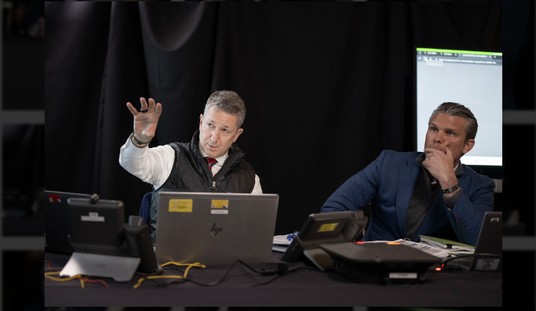Joe Gandelman, the Blogosphere’s Moderate Voice, links to this interesting post by Steven Donohue, an 18 year old college student, who laments the demise of popular culture by the baby boomer generation.
It’s kind of ironic, because my father frequently lamented the demise of the popular culture of his day (the 30s through the 1960s) by the baby boomer generation as well.
I’ll never forget the time (I think I must have been in my mid-teens) when I was listening rapturously to “Moonlight Mile”, the last song on the Rolling Stones’ 1970 Sticky Fingers album. I thought (and to a certain extent still do), that the combination of percussion, guitars, strings, and Jagger’s vocal was pretty stunning. My father walked into my room, stood there, listened as well, and when it was over, said, “That’s just brutal”. That was a somewhat popular phrase of his to describe rock music, but he kept it in reserve for what he felt were the worst offenders. I’m pretty sure “Layla”, by Eric Clapton (masquerading as Derek and the Dominoes) was similarly destroyed by Dad with a “That’s just brutal”. Thankfully, dad and I eventually found common ground with Les Paul, and later, Miles Davis.
Of course, such complaints are nothing new. As far as back as 1920, author John F. Carter, Jr. wrote in the Atlantic Monthly:
In the first place, I would like to observe that the older generation had certainly pretty well ruined this world before passing it on to us. They give us this Thing, knocked to pieces, leaky, red-hot, threatening to blow up; and then they are surprised that we don’t accept it with the same attitude of pretty, decorous enthusiasm with which they received it, ‘way back in the eighteen-nineties, nicely painted, smoothly running, practically fool-proof.
But I understand Donohue’s complaint. While I’m a thoroughly a child of the rock and roll generation (I can fake my way on guitar through loads and loads of Led Zeppelin, Rolling Stones and Who songs), I also understand that what was seemingly bulldozed by rock wasn’t too shabby: great songwriting, and the swing music of the 1930s to the early 1950s.
 But there was an interim step between the two, as Mark Gauvreau Judge discovered in his fun If It Ain’t Got That Swing, written in 2000. Rock only took off in the 1950s because bebop helped to destroy jazz’s popularity in pop culture. Bebop was far more complex, and evolved into all sorts of fertile terrain such as cool jazz, modal jazz, and free jazz–but by and large, you couldn’t dance to bop and its successors. Having felt abandoned by jazz, Judge writes, kids in the 1950s simply took to a new form of popular music that they could easily dance to: rock and roll.
But there was an interim step between the two, as Mark Gauvreau Judge discovered in his fun If It Ain’t Got That Swing, written in 2000. Rock only took off in the 1950s because bebop helped to destroy jazz’s popularity in pop culture. Bebop was far more complex, and evolved into all sorts of fertile terrain such as cool jazz, modal jazz, and free jazz–but by and large, you couldn’t dance to bop and its successors. Having felt abandoned by jazz, Judge writes, kids in the 1950s simply took to a new form of popular music that they could easily dance to: rock and roll.
In the early 1960s, Berry Gordy invented Motown, and gave black America a music that they too could easily dance to. By the middle of the 1960s, Motown’s Hollywood-style assembly line of songwriters, crack session musicians, and star vocalists gave the world tunes of surprising sophistication. “Just My Imagination”, just one of many examples, will take your breath away with its beautiful melody, vocal harmonies, backing score and lyrics.
Gordy’s entrepreneurial skill allowed black music to flourish in the 1960s and ’70s, and paved the way for the funk of James Brown, the sophisticated songwriting of Curtis Mayfield, and other great musicians.
But just as swing self-immolated into bebop, black pop music by the end of the 1970s also seemed to give up the ghost, and rap took off in its place. Gone was a sophisticated vocabulary that fueled the songwriting of the ’60s and ’70s, multi-faceted and at times complex and rich arrangements, and great vocalists. It was replaced by a combination of drum machines or drum beats “sampled” from the previous generation’s recordings, chanted vocals, tape edits, and slick production effects.
Was it better than what it replaced? Not in many peoples’ books, hence Donohue’s lament.
But was it entirely unexpected? Probably not. If its anything like previous genres of pop music, it too will eventually implode, and be replaced with a different form of music–which itself may or not be better.
What of rock? I think it’s possible to look back at 1985’s Live Aid concert, and see it as both the peak of mass media pop culture, and something of a dead-end as well for it.
MTV had only just debuted four years earlier. But shortly after Live Aid, it would begin to deliberately air less music videos, with the goal of using long-form programming to keep more young viewers around to watch the ads. It would also alienate much of the audience it built from its early commercials featuring musicians such as Bowie, Pete Townshend and The Police by emphasizing rap and hip-hop over rock.
Live Aid featured Madonna very early in her career, and as she went more and more for raunch and shock, MTV trended in that direction with her. It










Join the conversation as a VIP Member